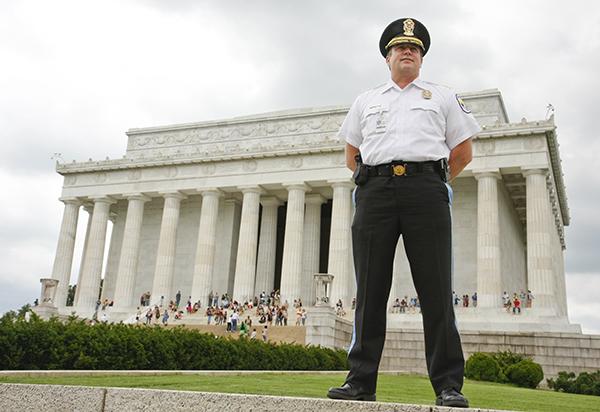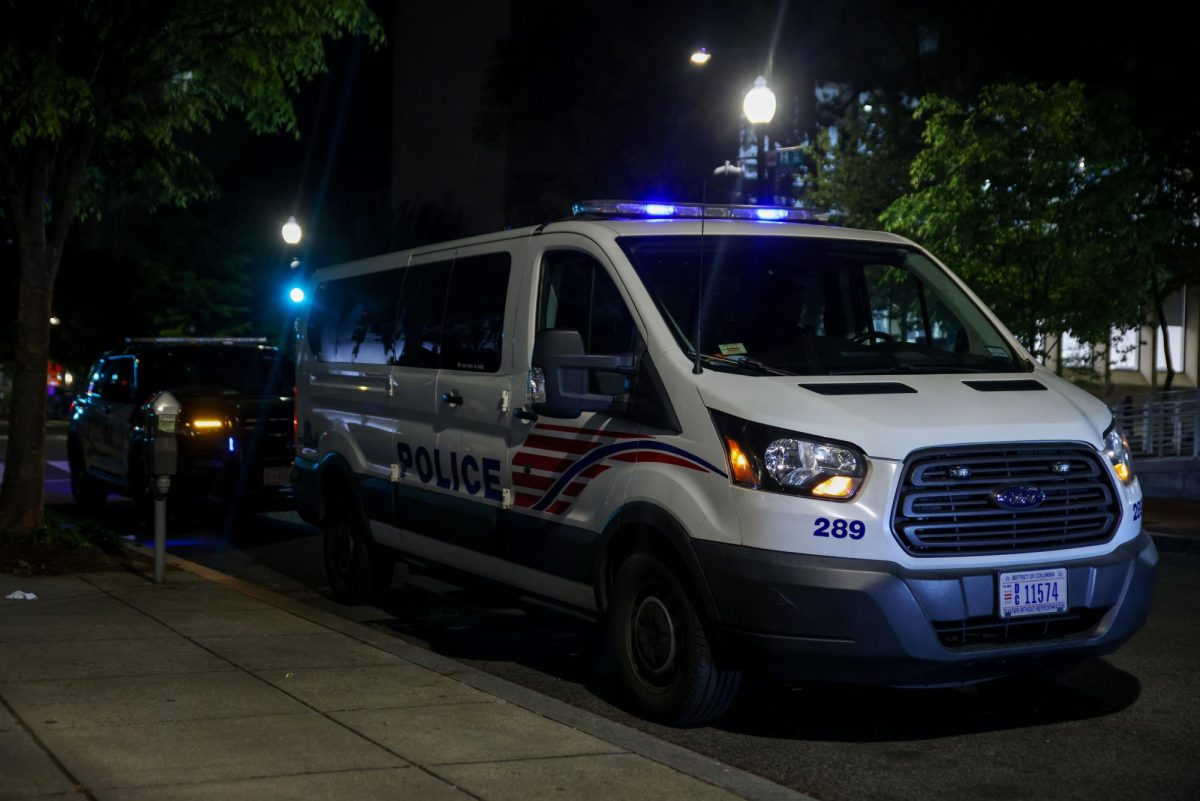When University Police Department Chief Kevin Hay retires in two weeks, he will leave the department without a permanent leader to oversee officers through the rest of the semester.
Hay will leave behind a mixed legacy as GW’s police chief, after helping the department earn high marks from a national accrediting agency and increasing police presence on campus. But over the past year, officers have complained of a hostile work environment, and the department has been at the center of five officers’ complaints of racial, sexual or age discrimination.
Of the five complaints filed since 2010, three of those complaints have been filed since March.
Hay has spent four years at the head of the department, compared to his predecessor, Dolores Stafford, who stayed with the University for two decades. A nationwide search will begin immediately for Hay’s successor, and Assistant Chief Frank Demes will lead the department until a permanent replacement is found.
Hay has not sat for an interview since April and has declined repeated requests to do so. He has deferred to a spokesperson on questions about breaking news and crime alerts, sexual assault reports, complaints filed against the department and changes to UPD policy. He previously sat for monthly interviews with The Hatchet and would respond to emails about breaking news within minutes.
UPD officers are not authorized to speak with the media. Multiple current and former officers did not return requests to comment on Hay’s departure or his legacy at GW.
Chuck Drago, a former police chief who now advises police departments, said hiring a new chief should be a priority for a university.
“I’ve seen agencies almost come to a grinding halt,” he said. “No one knows what’s going to happen, and that person is the interim. It’s a difficult position for him or her. You have to make these tough decisions.”
Leaving ‘baggage’ behind
The department has dealt with two claims of racial discrimination and another case of sexual harassment in the last seven months. Officers have said fellow officers create a toxic work environment that has contributed to high turnover and damaged morale.
It’s not unusual for a police chief to step down after three or four years, said Gregory Gilbertson, a professor of criminal justice at Columbus State University and former police officer. He added that the lawsuits against the department wouldn’t have an effect on the new police chief.
“That won’t be their baggage, that will be the previous chief’s baggage,” he said.
Ari Wilkenfeld, a lawyer who is representing two former officers’ cases against UPD, said Hay’s departure will not impact the outcome of those cases and declined to provide updates on the complaints.
“This is a guy who’s retiring and is getting off scott free. I don’t know if he’s lucky or smart,” Wilkenfeld said. “If he’s resigning with full benefits then he’s a very lucky man, considering what’s happening in that department.”
Three decades of policing
Hay, who is in his mid-fifties, spent more than two decades as the former deputy chief of police for the U.S. Park Police before coming to GW. That experience helped him oversee security when thousands attended graduation on the National Mall and GW hosted large events, like the recent World Bank and International Monetary Fund summit held at locations across campus.
“After 31 years in law enforcement, I have decided to retire from police work and spend some time with my family in North Carolina, back where I started my career,” Hay said in a statement released by the University.
Back on campus, Hay added 24-hour security to at least three residence halls after a string of laptop thefts and burglaries in 2013.
The department also looked to increase security in other buildings while Hay was chief. UPD stationed an officer in Rice Hall after a female employee reported that a man had attacked and attempted to sexually assault her in December 2012.
Boosting security across campus came at a time when Hay prioritized making officers more visible to students. The department also released a smartphone application this year to help students have more options for reporting on-campus crimes.
Senior Associate Vice President for Safety and Security Darrell Darnell said Hay successfully ran the department of more than 100 officers.
“Among Kevin’s contributions is his enhancement of the department’s communications and training with local law enforcement agencies, strengthening our ties to the city,” Darnell said.
Hay also helped move the department to a more central location on campus in 2012, after the Occupational Safety and Health Administration came to UPD’s previous headquarters to inspect a rodent infestation.
Hay will depart as the department is up for reaccreditation. The executive director of the agency that reviews UPD every three years said its rating won’t be hurt by Hay’s retirement.
“It doesn’t change the review for us, we just have other people to deal with,” he said.
A tenure of ups and downs
Hay’s tenure was tarnished by communication failures between UPD and the Metropolitan Police Department.
In 2011, UPD waited almost two hours to notify MPD that it had received a threat that a man was going to bring a gun to campus. Two years later, campus police did not alert MPD for 15 minutes following reports of a gunman in South Hall.
Two years ago, officers also complained of dysfunctional handheld radios, which made it impossible for them to communicate across campus.
And for years, including before Hay became chief, UPD officers operated outside of their campus jurisdiction. UPD started to change that controversial policy in April 2013 after two UPD officers were suspended for policing off campus, outside their legal jurisdiction.
Hay has said in past interviews that he worked closely with MPD Commander Michael Reese, who oversees the area that includes Foggy Bottom. City police officers would at times join UPD for meetings about campus safety to discuss crime trends in the area.
Reese said he was “joined at the hip” with Hay, and added that they had an “open dialogue” about campus crime.
“He knew how to have a sense of urgency and to make sure the students were safe. We knew we set the tone in our positions and that’s what we had to do,” Reese said.








